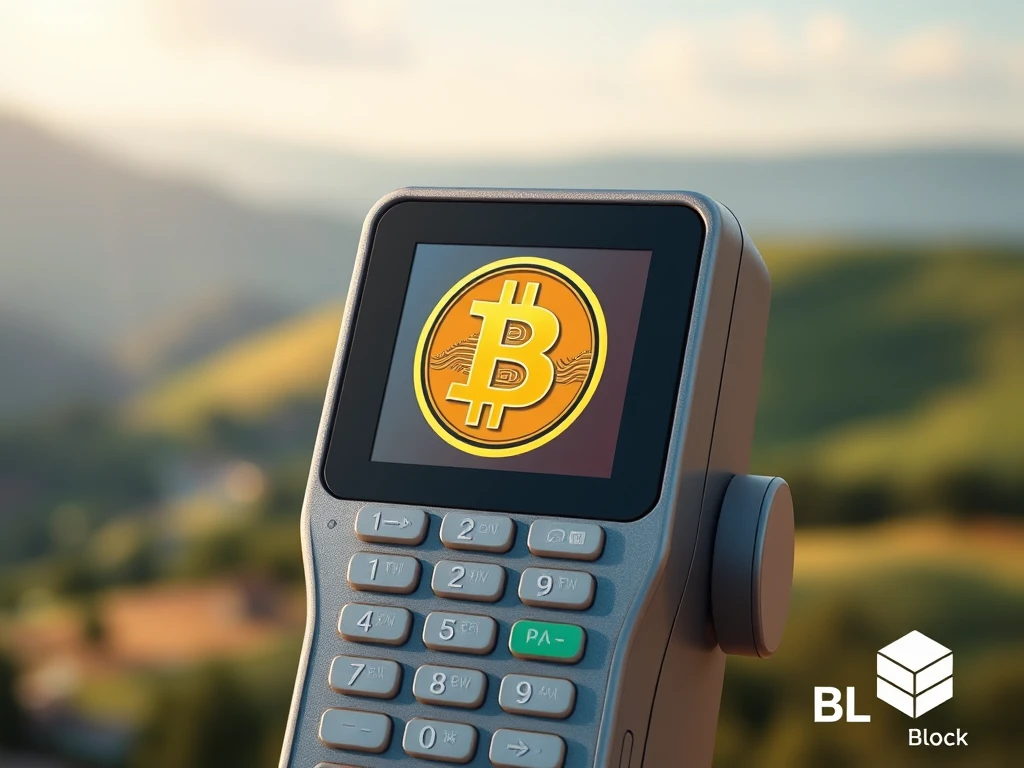Bitcoin Payments: Block’s Ambitious Square Rollout by 2026

Major news from the world of cryptocurrency and traditional finance! Jack Dorsey’s financial services company, Block, Inc., is making significant strides in bringing Bitcoin payments to a wider audience through its Square platform. This move, announced recently, signals a strong commitment to integrating digital currencies into everyday transactions.
What are Block’s Plans for Bitcoin Payments on Square?
Block, Inc. revealed its strategy to launch Bitcoin payments functionality on its popular payments processing arm, Square. The plan is ambitious, with a phased rollout expected to begin in the latter half of 2025 and reaching all eligible Square sellers by 2026. This timeline is contingent on navigating necessary regulatory approvals.
Key features for merchants include:
- Accepting Bitcoin (BTC) directly through existing Square hardware.
- Utilizing the Lightning Network for faster, lower-cost transactions.
- Option to hold the received Bitcoin.
- Option to automatically convert Bitcoin to fiat currency in real-time.
For consumers, the process is designed to be simple, often involving scanning a QR code, with Square handling the underlying technical complexities.
How Does the Lightning Network Enable Square Payments?
The integration leverages the Lightning Network, a layer-2 scaling solution built on top of the Bitcoin blockchain. The main Bitcoin network can sometimes face congestion and higher fees, especially during peak times. The Lightning Network addresses these issues by allowing transactions to occur off the main chain, resulting in:
- Significantly faster transaction speeds (near-instant settlement).
- Substantially lower transaction fees compared to on-chain Bitcoin transactions.
This technology is crucial for making Bitcoin a viable payment option for the volume and speed required in retail and business settings.
Why is Jack Dorsey Pushing for Bitcoin Adoption?
Jack Dorsey, CEO of Block, has long been a vocal proponent of Bitcoin. He views Bitcoin as a tool for economic empowerment. This initiative aligns with that vision by providing merchants with more flexibility and options for accepting payments. As Miles Suter, Block’s Bitcoin Product Lead, stated, “This is about economic empowerment for merchants who like to have options when it comes to accepting payments.”
Block has also been steadily increasing its exposure to Bitcoin, including implementing a strategy of dollar-cost averaging (DCA) into BTC on a monthly basis. The company also launched Bitkey, a self-custody Bitcoin wallet, in late 2023, adding privacy and security features designed to simplify self-custody without traditional seed phrases.
What Benefits Do Merchants See with Bitcoin Payments?
The potential benefits for merchants are significant. A compelling real-world example comes from the fast-food chain Stake n’ Shake.
Dan Edwards, the operating chief at Stake n’ Shake, shared his company’s experience at the Bitcoin 2025 conference. After adopting Bitcoin payments, Stake n’ Shake reported cutting its payment processing fees in half. Edwards noted that Bitcoin transactions were faster than credit cards and resulted in approximately 50% savings on processing fees when customers paid in Bitcoin.
This example highlights the potential for businesses to reduce operational costs and improve transaction speed by accepting Bitcoin, creating a ‘win’ for the customer, the merchant, and the broader Bitcoin community.
Looking Ahead: The Future of Bitcoin on Square
The planned rollout of Bitcoin payments on Square represents a major step towards mainstream cryptocurrency adoption. By integrating Bitcoin into a widely used payment platform, Block is making it easier for businesses and consumers to engage with digital currency. While regulatory approvals are still needed, the commitment from a major financial player like Block is a positive signal for the future of Bitcoin as a payment method. The experience of early adopters like Stake n’ Shake further validates the potential benefits for merchants.










